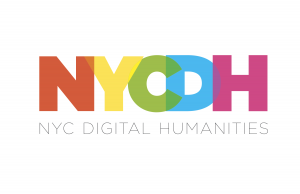Building a Support Structure for Digital Humanities Research Projects in the Classroom
NYU 726 Broadway 726 Broadway, 6th Floor, Conference Room B, New YorkThis workshop will be a hands-on experience in which participants learn about the different aspects of support necessary for planning and implementing digital humanities research projects in the classroom. The session will be structured in a jigsaw format that puts participants in teams, assigns them functional roles (faculty member, student, instructional designer, librarian, technical staff), [...]

